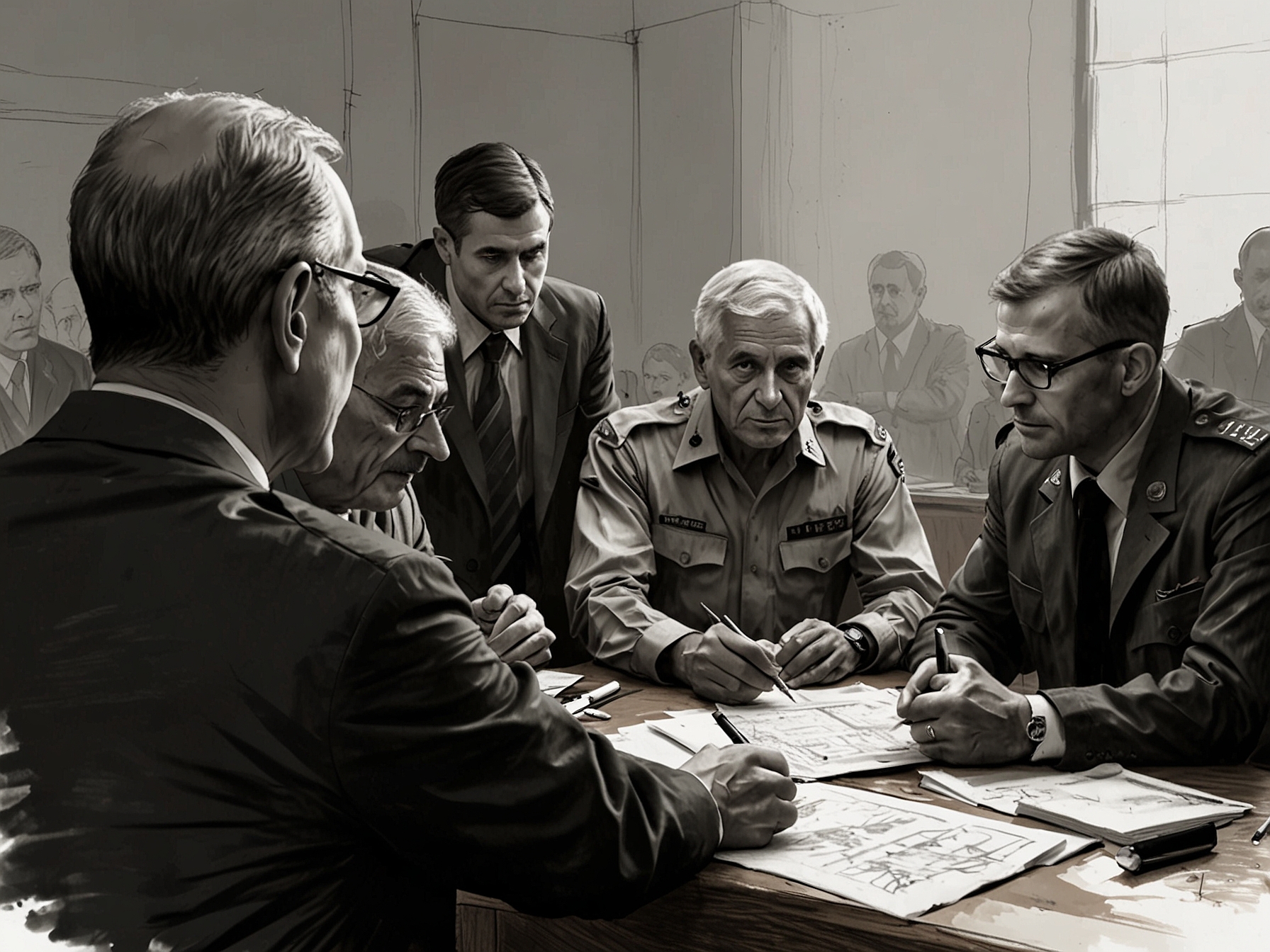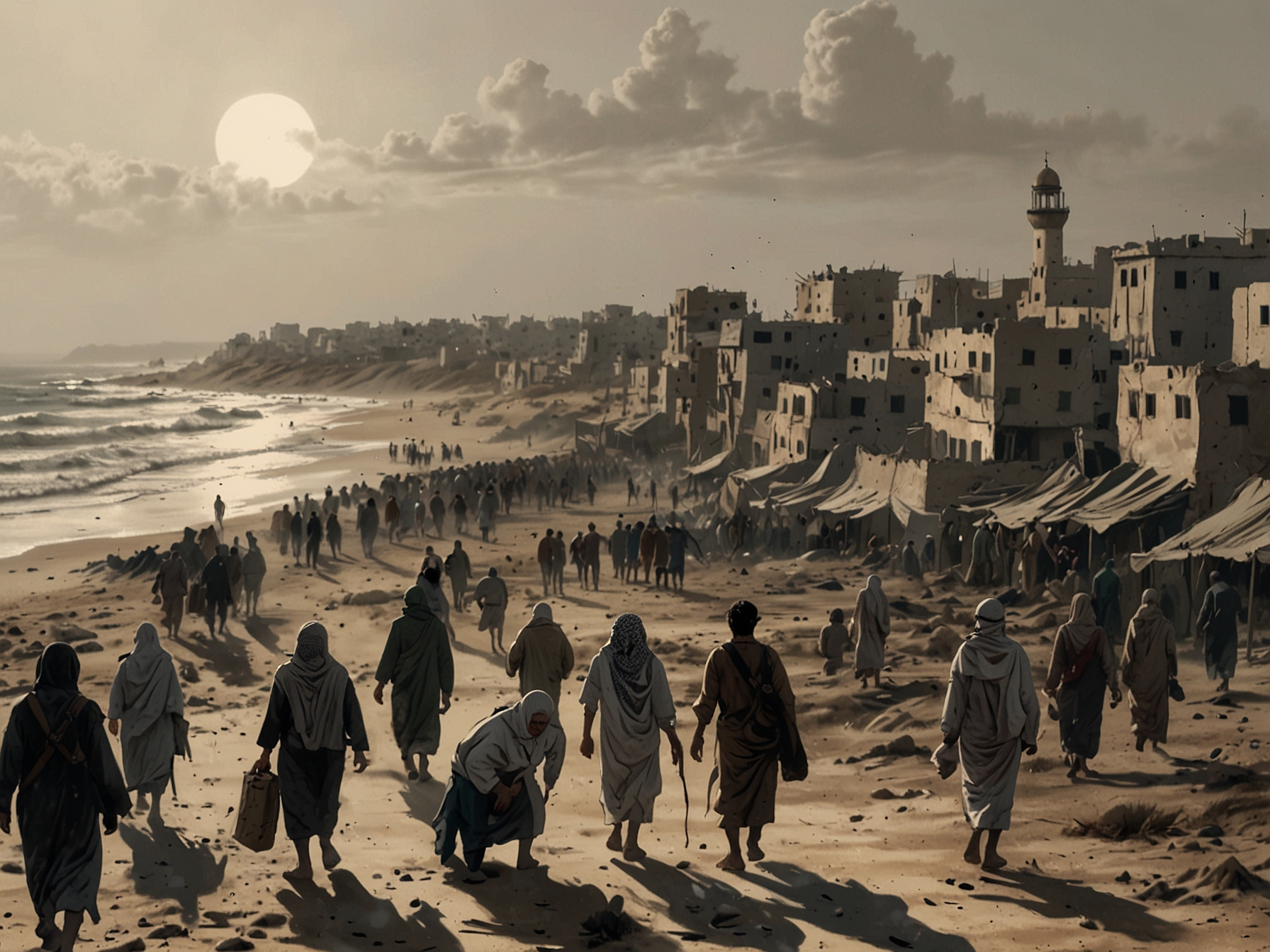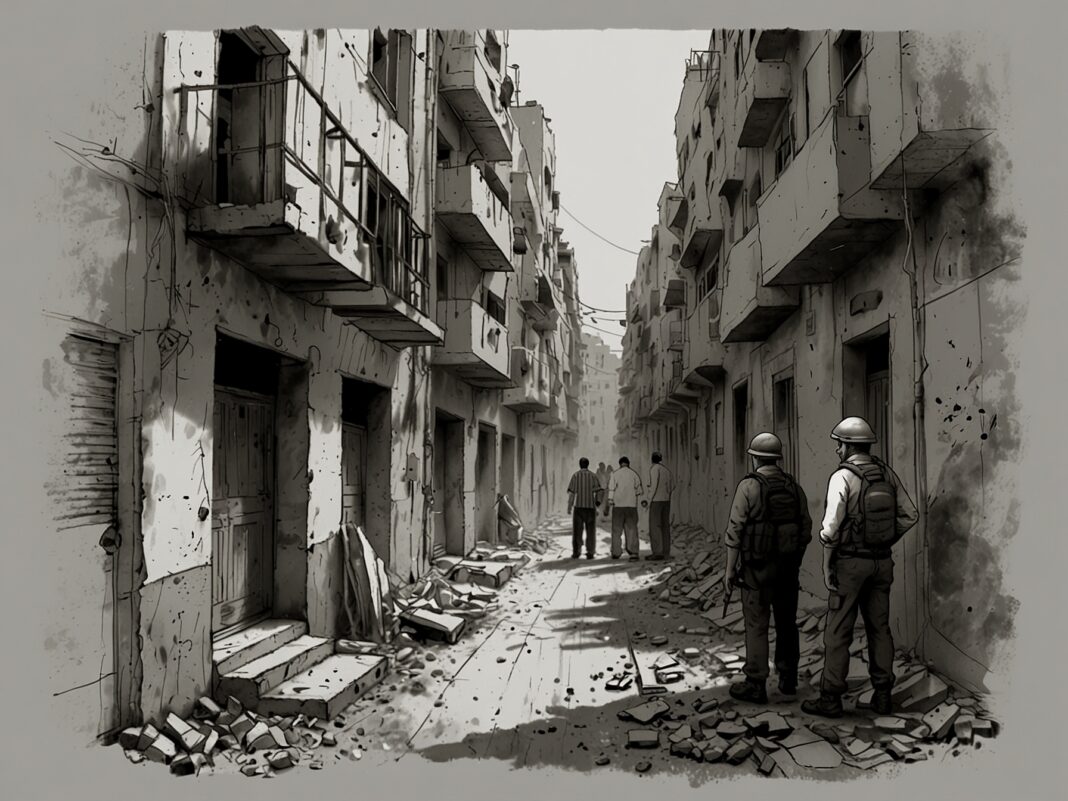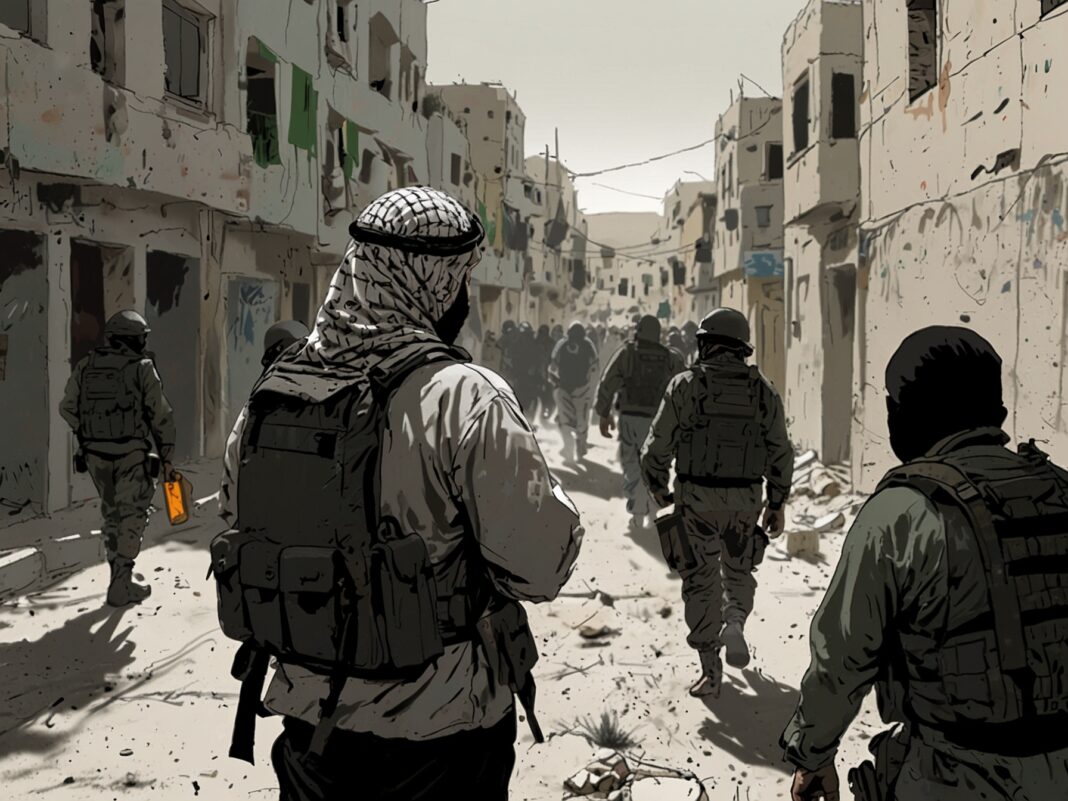In the heart of every sovereign nation lies a solemn obligation: to protect its citizens from harm, both foreign and domestic. This fundamental duty becomes glaringly apparent when the specter of terrorism rears its monstrous head. In such times, the government faces a moral and ethical imperative to act decisively to ensure the safety and security of its people. This brings us to the distressing situation in Gaza, where the civilian population, caught in the crossfire of political and ideological battles, finds itself at the mercy of a determined and insidious foe – Hamas.

© FNEWS.AI – Images created and owned by Fnews.AI, any use beyond the permitted scope requires written consent from Fnews.AI
The question that echoes through the minds of many is quite simple: If you were being held hostage, wouldn’t you want your government to rescue you? This rhetorical query delves into the innate human desire for safety and security, a wish transcending geographical, cultural, and political boundaries. Governments worldwide grapple with this challenge, facing the daunting task of not only rescuing hostages but also addressing the broader, root causes of such crises.
Hamas, a militant organization with an entrenched ideological stance, has often been at the center of regional conflict. Its actions have, unfortunately, led to significant collateral damage, with civilian casualties being a tragic and all-too-frequent consequence. The inhabitants of Gaza find themselves in a perilous position, often used as pawns in a larger game of ideological and political chess. This grim reality necessitates reflection on the part of the global community, urging a deeper understanding of the situation at hand and considering avenues for meaningful intervention and resolution.

© FNEWS.AI – Images created and owned by Fnews.AI, any use beyond the permitted scope requires written consent from Fnews.AI
The strategic and meticulously planned actions of Hamas are not merely random acts of terror. They are calculated moves designed to elicit specific responses, provoke reactions, and further their cause. This orchestrated campaign of destruction and destabilization has long been a point of contention, and it raises a crucial question: How can the civilian inhabitants of Gaza not blame the insidious Hamas for intentionally planning their destruction? With lives on the line, the very fabric of society in this region is under tremendous strain.
The humanitarian crisis in Gaza is compounded by a myriad of factors, all converging to paint a grim picture. Blockades and restrictions on movement have crippled the local economy, leading to desperate living conditions for many. Access to essential resources such as clean water, medical supplies, and food is often severely limited, exacerbating the suffering of the innocent. These hardships fuel resentment and despair, emotions that can be exploited by groups like Hamas to further propagate their agenda.
From an international perspective, the situation in Gaza is a powder keg. The actions taken by Hamas not only endanger the local population but also heighten tensions on a global scale. Various stakeholders, including neighboring countries and international organizations, are drawn into the fray, each with their own interests and perspectives. The complexity of the issue demands a multifaceted approach, one that addresses immediate security concerns while also paving the way for long-term, sustainable peace.
It’s essential to consider the psychological impact on the civilians of Gaza, living under the constant threat of violence. The chronic stress and trauma inflicted upon these individuals leave lasting scars, both physically and mentally. For many, the daily reality includes navigating a labyrinth of checkpoints, surviving airstrikes, and mourning the loss of loved ones. In such a hostile environment, the demand for a governmental rescue becomes not just a matter of strategic importance but a humanitarian imperative.
Drawing parallels with other global hostilities helps underscore how universal this need for rescue and protection truly is. Whether it’s a hostage situation in a far-flung territory or an ideological battle playing out in urban centers, the underlying principle remains the same: Governments are duty-bound to protect their citizens. Failure to do so not only undermines the state’s legitimacy but also sows seeds of distrust and disillusionment among the populace.
In the pursuit of a solution, one must also consider the role of diplomacy and international cooperation. While military interventions may provide immediate relief, they often come at a high cost and may not address the underlying issues fueling the conflict. Diplomatic efforts, on the other hand, aim to bring about a dialogue that addresses grievances, fosters understanding, and seeks a sustainable resolution. It involves engaging with all parties, even those with opposing views, to navigate the complex dynamics at play.
Ultimately, the plight of the civilians in Gaza serves as a poignant reminder of the broader human struggle for safety, dignity, and peace. It calls upon the collective conscience of the global community to act with empathy, reason, and resolve. Governments, international organizations, and civil society must come together to chart a path forward that not only addresses the immediate crisis but also lays the foundation for a future free from fear and oppression.
As we reflect on the question of rescue, it becomes clear that the responsibility lies not just with the government but with each of us. Advocating for policies that prioritize human welfare, supporting humanitarian efforts, and fostering a global culture of cooperation and understanding are all steps toward ensuring that the desperate pleas for rescue do not go unheard. In a world fraught with peril and uncertainty, the collective action of humanity stands as the beacon of hope, guiding those in distress toward safety and a brighter tomorrow.
Was this content helpful to you?





